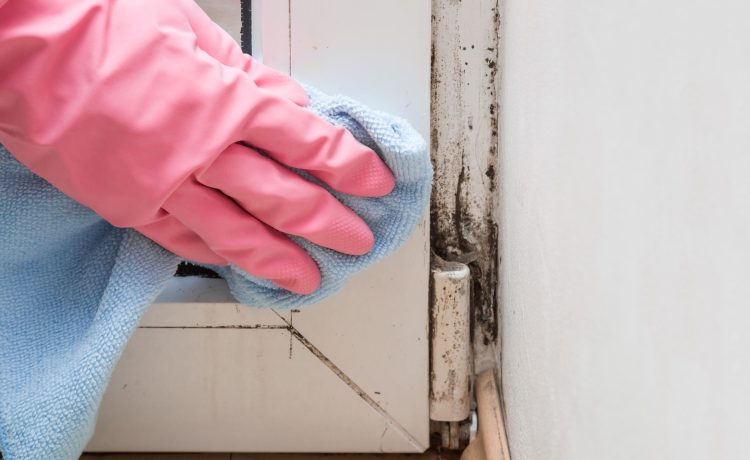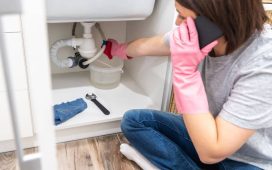Did you know that over 70% of rental properties have some form of mold problem?
We’re here to explore this pressing issue, shedding light on the responsibilities landlords bear, as well as the rights tenants hold when it comes to mold in rental properties. It’s a topic often swathed in confusion and misinterpretation, with both parties sometimes unsure of who should bear the brunt of the problem. So, does the responsibility fall on the landlord, or does it land on the tenant? Stick around as we untangle this knotty issue.
Understanding Mold: Causes and Impact
Let’s dive into understanding mold, a silent invader that thrives in damp environments and can have serious health impacts. It’s a type of fungus that spreads by releasing spores into the air. When these spores land on a moist surface, they begin to grow. We often find mold in bathrooms, kitchens, basements, and anywhere else where there’s high humidity or water damage.
The problem isn’t just aesthetic. Mold can affect our health. It releases allergens, irritants, and even toxic substances known as mycotoxins. For some of us, exposure to these can trigger allergic reactions, including sneezing, runny nose, red eyes, and skin rash. People with asthma or mold allergies may have more severe reactions, including shortness of breath and fever.
It’s also important to know that not all molds are harmful, but identifying the harmful ones isn’t easy. The most common types of mold found in homes are Cladosporium, Penicillium, Aspergillus, and Stachybotrys, commonly known as black mold. The last one is particularly notorious as it produces mycotoxins that can cause severe health problems.
We must be vigilant about preventing mold growth, especially in rental properties. Landlords have a responsibility to provide a safe and healthy living environment. If mold is growing due to issues like leaks or poor ventilation, it’s the landlord’s responsibility to rectify it. As tenants, we should promptly report any signs of mold and cooperate with the landlords to address the problem.
Understanding mold, its causes and impacts, is an essential step in maintaining a healthy living environment.
Landlord’s Legal Responsibilities
While it’s crucial for tenants to report mold issues, it’s equally important to understand that landlords have legal obligations to ensure their properties are safe and mold-free. When a tenant notifies their landlord about a mold problem, the landlord’s responsibility to respond promptly and effectively kicks in.
Landlords are required by law to maintain their rental properties in a habitable condition. This includes addressing serious issues such as leaks, structural damage, and mold that can affect a tenant’s health and quality of life. If a landlord fails to rectify a reported mold issue in a reasonable time frame, they could face legal consequences.
Landlords aren’t just responsible for mold removal but also for fixing the underlying cause. Whether it’s a leaky pipe, poor ventilation, or structural issues allowing moisture inside, it’s up to the landlord to ensure the problem doesn’t reoccur.
If landlords don’t meet their responsibilities, tenants may have legal recourse. Depending on the state, this could include withholding rent, paying for repairs and deducting the cost from the rent, or even breaking the lease without penalty. Some states also allow tenants to sue landlords for damages related to health issues caused by mold exposure.
Tenant’s Rights and Remedies
In light of these landlord responsibilities, tenants have specific rights and remedies when facing mold issues in their rented homes. Essentially, it’s our right to live in a habitable, safe, and healthy space. If mold rears its head, we’ve got some options.
Firstly, we can directly contact our landlord and voice our concerns. It’s their responsibility to handle mold problems, but they may not know there’s an issue unless we tell them. We should document everything – our initial discovery of the mold, our communication to the landlord, and their response (or lack thereof). These records can be vital if legal action becomes necessary.
If the landlord doesn’t deal with the mold promptly or adequately, we can withhold rent until the issue is resolved. However, this is a serious step, and we should consult with a local tenants’ rights group or attorney before doing so.
In some cases, we might’ve the right to ‘repair and deduct.’ This means we can hire a professional to handle the mold and deduct the cost from our rent. Again, we should consult with a legal professional before taking this step.
## Preventive Measures Against Mold
Having explored the rights and remedies available to us as tenants when dealing with mold, it’s equally important to understand how we can prevent such issues from arising in the first place. Mold prevention isn’t just a landlord’s responsibility; we share a role in this as well. Here’s how we can be proactive in keeping our living spaces mold-free.










